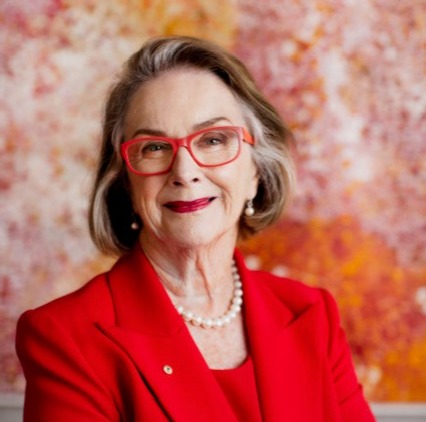She will be a part of the panel of guests on 10 April together with Professor Edward (Snow) Barlow and Jill Spilsbury. Find out more about the event here.
Pulse caught up with Wendy ahead of her visit to the UNE Armidale Campus.
What do you hope to share with the audience at the Alumni event this April?
It’s a thrill to be coming back to Armidale and I am looking forward to meeting the new Vice-Chancellor. I am really interested in the future of this university, I want it to flourish and I want to make people be proud to be a part of it. Rural and regional education is of profound importance to Australia.
Education is the most important game in town. Once you have it, it’s the only thing that no one can take away from you.
What were your own first impressions of university life?
I came from a family where education was valued but no one had finished high school.
When my parents drove me to Armidale to start University in 1958 we were in our best clothes, out of respect and our lack of confidence about what to do. I had never been inside a university building but I had read a lot of books and had a vague idea of what a university looked like.
I was excited when I saw Booloominbah. It looked like my dream and there was a deer park in the grounds! Then my heart sank when I saw where I was going to live, Bellevue Cottage on the outskirts of the University, which was definitely not Oxford or Cambridge. There was no turning back, I realised I had to get on with this.
The first people I met at UNE would go on to be enduring friends. The four girls I lived with as a 16 year old have remained friends for life. My first mentor, Don Aitken, became the Vice-Chancellor of the University of Canberra after a distinguished academic career. When I was appointed by the Minister for Education to the University [of Canberra] Council I could not have imagined I would later be elected Chancellor every two years for a decade, and Don and I would mentor each other.
The first thing I noticed about university was the sense of excitement. It still felt like an experiment as it developed its sense of place. It was the only university outside the capital cities and large urban centres, and often described as “our bucolic University”. There was a sense a collegiality at UNE as there were very few places where students lived and studied in the same place.
And there were seasons. The New England landscape, snow gums, mountains and freezing mornings made a strong impression on me.
Was there social change on campus at that time?
The idea of feminism as a movement wasn’t significant to students at the time, we didn’t think in such confronting terms. I hadn’t heard the word until some years later. However I remember being taught by two women teachers, and they stood out as role models. The greatest social change was the number of women students and how to keep them safe. The girls who had unplanned pregnancies and disappeared. Losing their access to education was rarely discussed but real.
What were some of your early opportunities for leadership?
UNE gave me my earliest experiences of leadership when I was appointed as a college tutor, known as a ‘moral tutor’ to distinguish from the academic tutors, and moved into the worst of the four student accommodation huts to take up the role. They told me I was given all the ‘naughty’ girls, the ones who were most spirited, because they would get the most out of me. There was plenty of excitement with those girls and I loved them for their energy and spirit.
Do you have any enduring advice for students at University in 2024? Both young women and men?
An enduring piece of advice for university students is to keep heart and head connected. If your heart isn’t in it, it won’t work. Listen to your gut.
Secondly, if someone thinks you can do something, you probably can. Other people see things in you that you may not. Accept those opportunities.
For young men specifically, I wouldn’t give them a lecture on feminism, but I would say that there is much value in respectful discourse. In my career, you would be astonished at the number of people who shout. Some young men finish [single sex schools] without the experience of learning to compete and debate with girls with respect.
We want for our girls to have respect, safety and equity, but we want those things for our boys as well.
Read an extended interview with Wendy from July 2022.


